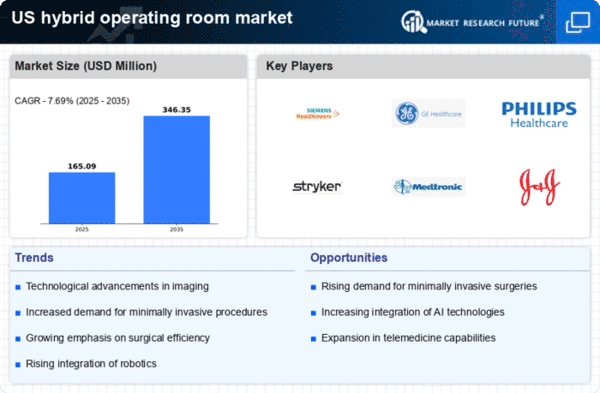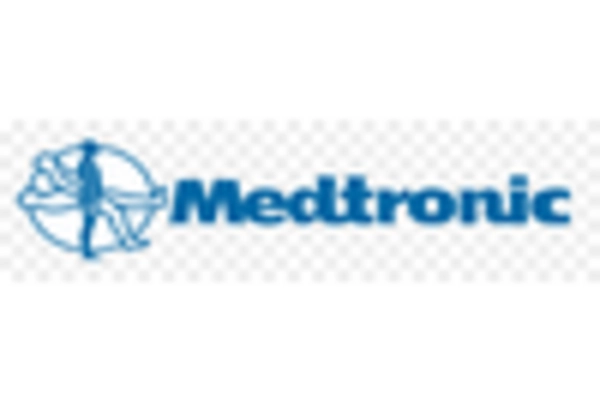Rising Demand for Advanced Surgical Solutions
The hybrid operating-room market is experiencing a notable surge in demand for advanced surgical solutions. This trend is driven by the increasing complexity of surgical procedures that require both surgical and imaging capabilities in a single setting. As hospitals and surgical centers aim to enhance patient outcomes, the integration of advanced technologies such as robotic systems and imaging modalities becomes essential. According to recent data, the hybrid operating-room market is projected to grow at a CAGR of approximately 12% from 2025 to 2030, reflecting the growing preference for these sophisticated environments. The ability to perform complex surgeries with real-time imaging not only improves surgical precision but also reduces the overall time spent in the operating room, thereby increasing efficiency and patient throughput.
Increased Focus on Patient Safety and Outcomes
Patient safety and outcomes are paramount in the hybrid operating-room market. The integration of advanced imaging technologies and minimally invasive surgical techniques within hybrid operating rooms significantly enhances the safety profile of surgical procedures. By allowing for real-time imaging during operations, surgeons can make informed decisions that minimize complications and improve recovery times. Data indicates that hospitals utilizing hybrid operating rooms report a reduction in surgical site infections by up to 30%, which is a compelling factor for healthcare providers. As patient safety becomes a critical focus, the hybrid operating-room market is likely to see continued investment and growth, as facilities strive to provide the highest standard of care.
Technological Advancements in Surgical Equipment
Technological advancements in surgical equipment are a driving force in the hybrid operating-room market. Innovations such as high-definition imaging systems, robotic-assisted surgical tools, and integrated surgical platforms are transforming the way surgeries are performed. These advancements not only enhance the capabilities of surgeons but also improve the overall efficiency of surgical procedures. The market for surgical robots alone is expected to reach $20 billion by 2026, indicating a robust growth trajectory. As hospitals invest in state-of-the-art equipment to remain competitive, the hybrid operating-room market is poised for significant expansion, driven by the demand for cutting-edge surgical technologies.
Regulatory Support for Advanced Surgical Facilities
Regulatory support for advanced surgical facilities is a crucial driver in the hybrid operating-room market. Government initiatives aimed at improving healthcare infrastructure and promoting the adoption of innovative surgical technologies are fostering an environment conducive to growth. Policies that incentivize the development of hybrid operating rooms, along with funding opportunities for hospitals to upgrade their facilities, are becoming increasingly prevalent. This regulatory backing not only encourages investment in advanced surgical environments but also ensures that healthcare providers can meet the rising demand for complex surgical procedures. As regulations evolve to support technological integration, the hybrid operating-room market is expected to thrive.
Growing Preference for Minimally Invasive Techniques
The growing preference for minimally invasive techniques is reshaping the hybrid operating-room market. Patients increasingly favor procedures that promise shorter recovery times, reduced pain, and minimal scarring. Hybrid operating rooms facilitate these techniques by combining advanced imaging and surgical capabilities, allowing for precise interventions with less trauma to the body. Recent studies suggest that minimally invasive surgeries can reduce hospital stays by up to 50%, making them an attractive option for both patients and healthcare providers. As the trend towards less invasive procedures continues, the hybrid operating-room market is likely to expand, driven by the need for facilities that can accommodate these evolving surgical practices.
















